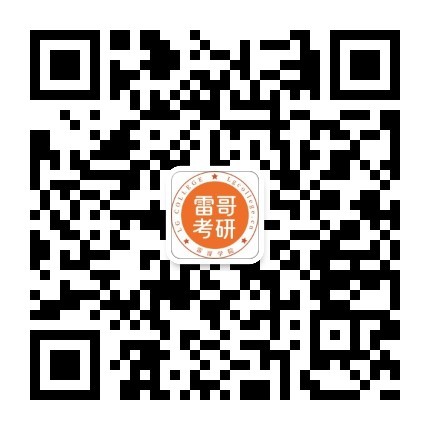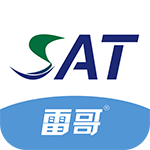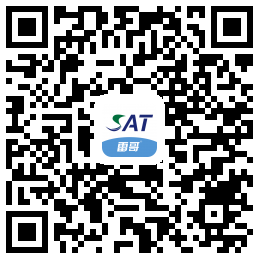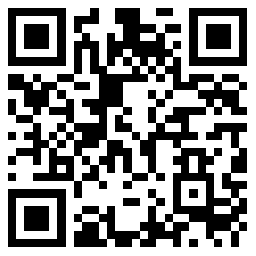资料下载
- 2021年全国硕士研究生招生考试英语(二)试题
- 2021年全国硕士研究生招生考试英语(一)试题
- 2020年全国硕士研究生招生考试英语(二)试题
- 2020年全国硕士研究生招生考试英语(一)试题
- 2019年全国硕士研究生招生考试英语(二)试题
- 2019年全国硕士研究生招生考试英语(一)试题
- 2018年全国硕士研究生招生考试英语(二)试题
- 2018年全国硕士研究生招生考试英语(一)试题
- 2017年全国硕士研究生招生考试英语(二)试题

-
jane
MBA提面干货 : 英文面试问答真题及注意事项!-雷哥MBA
发表于2021年05月17日 10:58 只看楼主
 收藏
收藏
今天雷哥MBA小编为大家总结的22考生必看的英文面试必过指南! 考研|英语面试都考什么? 如果统计哪个环节是 MBA 考生在面试中最关注也最紧张的环节,那么英文面试环节恐怕很有可能会高票当选。 在这个环节中,考生的情绪往往会比其他环节更为紧张和焦虑,甚至会有考生因为一个学校的面试中包含英文面试环节而选择放弃报考该学校。 因而,针对这个环节做一个专项提升,从能力和心理上做好应对英文面试环节是非常有必要的。 一、考核内容与特点 目前被商学院最为广泛采用的英文面试形式,是在个人面试中加入英文的问答环节,只有少数名校的国际项目会采用全英文面试。 由于一般报考国际项目的考生都具有一定的外语功底,我们在此主要以个人面试的英文问答为目标来进行学习。考生必须清晰地认识到,所有的本土 MBA 项目,英文面试环节的考查对象都是考生的英文语言能力。 无论是否涉及海外交流,在 MBA 的学习过程中考生都需要具备基本的英语应用能力。 比如,在论文写作中需要进行英语文献的检索和阅读,一些重要的讲座或者报告会由国外知名学者或者企业家主讲等。 具体地说,在笔试中主要考查的是考生的英语读写能力,而在面试中主要考查的是考生的听说能力、语言交际能力。听,要求考生要听清楚面试官的提问并准确理解题目要求,这是答好题目的第一步,也是最关键的一步。说,要求考生能够用英文准确地表述自我特质和自己的观点,能够围绕中心话题进行对话与交流。 语言交际能力是指说话人在社会交往的各种环境中运用语言的能力,要求考生能够在不同的语言环境中选择合适的表达方式,进行自然得体的交流。 由于考查目的较为明确,测评的维度比较简单,同时考生英语能力的平均水平不高,共同导致英文面试环节有以下特点: (1)时间相对较短。有的高校将口语面试时间控制在 10 ~ 15 分钟,有的高校则只有短短的几分钟。 (2)分值比例相对较少。相对于小组面试和个人面试,英文面试成绩在考生面试总成绩中所占的权重相对较低。 (3)评价相对独立。在个人面试中,每个环节之间往往在评价上存在一定的关联性。比如自我介绍发挥出色的考生,在自由问答环节也能因此获益;前面的问题回答的好坏,会影响到之后回答问题时的表现。但英文面试环节则比较独立,不受其他环节发挥的干扰。 (4)形式以问答为主,延伸较少。中文面试环节,面试官抛出一个问题后,往往会和考生在相关问题上做深入探讨,问答交互次数多。而英文面试环节,绝大多数面试官不会做进一步的追问。 二、英文题型分类 这里我们将常见的问题分为三类:个人背景类、个人意向类、个人行为类。我们会对每一类问题进行一个简要介绍,罗列一些例题,并选择其中最经典的例题提供一篇模板。 希望考生们能正确地使用模板,不要生搬硬套,应该学习其解析的结构思路、语言组织,最终形成自己应对英文面试环节的独特方法。 1. 个人背景类 此类问题通常是有关考生个人基本情况的问题。在英文面试中,面试官经常要求 考生先做一个简单的英文自我介绍,作为此类问题最常见的形式。 【问题示例】 (1)What can you tell me about yourself ? 你能谈一谈你的个人情况吗? (2)What’s your educational background ? 你的教育背景是什么? (3)What are your strengths and weaknesses ? 你的长处和短处是什么? (4)What are your hobbies in your free time ? 你的业余爱好是什么? (5)Please talk about your hometown. 谈谈你的家乡吧。 (6)Could you talk about your job ? 你能谈谈你的工作吗? 个人背景类典型例题 a. Self-introduction. Good morning, my dear teachers, my dear professors. I am very glad to be here for your interview. First let me introduce myself. My name is You Hengbo. I was born in Shandong Linqing in 1984, a small city which is in the northwest of Shandong Province. I graduated from North China Electric Power University and got the bachelor degree, with the major of Finance in 2007. I was diligent in university and my grades were among the tops. In fact, I was awarded scholarships for 3 times during the (four) years of university life. After my graduation, I joined China Galaxy Securities in May, 2007, which is one of the top security companies in China. My position was securities trader, and my job was to open a security account and maintain customers. In February, 2008, for some reasons, I changed my job to another company, ZMAY Holdings Limited Company, which is an investment company in Beijing. My responsibility was to search for projects, negotiate and draft agreements and maintain follow-up relations. In February, 2009, I joined Datang Telecom Technology Industry Holdings Limited Corporation. From then to now, I have been in Datang as an investment manager. My responsibility is to manage investment (such as investment work and investment approval). That is all, thank you for your attention. b. What are your strengths and weaknesses? I am a fast learner: I learn things very fast, and I can adapt to a new environment in a short time; I have good analytical and problem-solving skills, which will help me a lot during my MBA; I have potential in management and leadership, which is demonstrated and recognized in my company, but I still hope to get it improved systematically in university. My weakness is that I am a very dedicated person, so I won’t stop until a job is well done. c. What are your hobbies in your free time? There are a lot of things that I like to do in my free time. As people say, all work and no play make Jack a dull boy, and I perfectly understand the importance of relaxation after work. I like sports very much and football is my favorite. It’s always great to get together with my mates on weekends, and keep running around the ground for a few hours. It makes me physically stronger and totally refreshed. 2. 个人意向类 个人意向类问题会涉及考生的价值取向、求学动机、职业兴趣、职业规划等多个 方面的话题。 【问题示例】 (1)Please talk about your reasons for your choice of MBA. 请谈谈你选择攻读 MBA 的原因。 (2)Why do you think that MBA courses will help you a lot in your future ? 为什么认为 MBA 课程将在未来会对你大有帮助? (3)Why did you take the MBA examination ? 为什么会参加 MBA 考试? 个人意向类典型例题 a. Why do you apply MBA? First of all, as I got higher on the position ladder, and assumed bigger responsibility, I began to feel that my management ability was gradually pulling me back in my career development. Second, I take MBA because I want to have a career change. I started working as an engineer 5 years ago. I know how to develop new products, but I am not very good at marketing these products and converting them into profits. That’s why I hope MBA would help me in this respect. b. Please talk about your reasons for your choice of MBA. There are several reasons. Firstly, I have been deeply impressed by the academic atmosphere when I came here last summer. In my opinion, as one of the most famous universities in our country, it provides people with enough room to get further enrichment. This is the first reason. The second one is that I long for doing research in throughout my life. It’s a pleasure to be with my favorite for lifetime. I suppose this is the most important factor for my decision. Thirdly, I have learnt a lot from my job during the past two years. However, I think further study is still vital for me to achieve self-value. Life is precious. It is necessary to seize any chance for self-development, especially in this competitive modern world. In a word, I am looking forward to making a solid foundation for my future profession after two-year study here. c. Why do you think that MBA courses will help you a lot in your future? I do believe that MBA training courses will help me a lot in my future life. In my opinion, knowledge has no limit, and I should learn as more as I can. From the MBA training courses, I can learn many things which will help me a lot in my life. Firstly, I can learn more managerial skills, from which I will benefit a lot in my future work. Secondly, I can make friends with many people in the same occupation. At the same time, the courses will help me build the network. Finally, I also think that through the communication with others who major in different fields, my vision will be widened, and I will learn more about how to make my point of view different. It seems to me that, as an office lady, I need to learn at all times and from any person whom I can learn many things which are better for me, and for my vocational development. 3. 个人行为类 此类问题关注的是考生过去的行为,所问的是考生实际上做了什么、怎么做的、 有什么结果。回答也主要以对曾经发生的事情的描述性叙述为主,不必像中文面试时 那样刻意追求逻辑的完整和分析的深刻。 【问题示例】 (1)What is the most important lesson that you have learned in the past? 你在过去学到的最重要的课程是什么? (2)What idea or motivation from others makes you go on working instead of giving up? 其他人的什么想法或动机曾让你继续工作而不是放弃? (3)What was the most significant personal or professional risk you’ve taken? 你曾经经历过的最大的个人或专业风险是什么? (4)What contribution did you make to your current company? 你对你现在的公司有什么贡献? 个人行为类典型例题 a. What is one of the most important lessons that you have learned in the past? When I heard the question, an embarrassing experience suddenly occurred to me. Although it happened a long time ago, the memory of it still remains fresh in my mind. At that time, I was in my senior year and was invited to serve as an interpreter for an important seminar, the topic of which was“The Public Health in China”. In that seminar, heads of Kunming Pharmaceutical Co., Ltd. and students from the Ross Business School of Michigan University got together to discuss the issue of public health both in China and in the United States. During the discussion, they mentioned a type of chronicle disease— “cardiovascular disease”for many times. However, I just failed to interpret it,which to some extent hindered the progress of the conference. Actually, before the seminar, the organizer had sent me all the materials. However, I just reviewed them casually as I overestimated my knowledge on medical English. But thanks to that experience, I came to realize the importance of well preparation as well as modesty. Just as a saying goes, chances favor the minds that are prepared. Without full preparation, a man can never achieve success. Moreover, modesty is a virtue that helps us to notice our weaknesses and to learn others’ strengths as well. In my opinion, nobody is perfect, but we are always striving to be perfect! b. What idea or motivation from others makes you go on working instead of giving up? Generally speaking, I have a strong mind, so I would seldom pick up the idea of giving up. However, when I was in my early twenties, I was not so tenacious and was always overwhelmed by tough challenges in my working life. I still remember that after my graduation, I chose to depart from my parents and leave for Beijing for further development. I had no friends or relatives in Beijing at that time, and all my understanding about Beijing came from the TV programs. My fifirst job was to perform as the president assistant in a red wine import and export company. That company was still at its primary stage, so I almost had to work extra hours every day. Besides, as I had little knowledge about red wine, I spent most spare time in studying wine knowledge. As a result, I was fully occupied and had no time for myself. Confronting such stress, I had thought about giving up for a thousand times. One day, I’ve had enough of my job and phoned my dad for comfort. Having heard that I decided to quit, my dad said nothing but“stick to what you have chosen”. That simple utterance was like a blow on the head. I began to realize how stupid and incapable I was. Stress and setbacks were inevitable, and if I yielded to them, I would never improve myself; whereas if I overcome them, I could enter into a new chapter of my life. After that day, I began to enjoy my work. Although I still felt challenging, I was inclined to view all the challenges as treasurable opportunities to improve my capability. Gradually, I became more and more professional in wine tasting and wine culture. Also, I mastered the skill of time management and accumulated precious customer resources at the same time. But most important of all, I corrected my attitude towards work. To confront rather than to evade is the best way to address the challenges in our life. c. What was the most signifificant personal or professional risk you’ve taken? I have taken the most significant professional risk in my twenties. At that time, I had just got my master’s degree in philosophy and was employed by my alma mater as a philosophy teacher. The career path lying ahead of me is stable and decent. However, I just felt it was not my ideal life, and I believed my life should have more possibilities. Therefore, I resigned and started my own business. At that time, China had decided to embrace the market economy, and such transformation had offered local enterprises abundant developing opportunities; while at the same time, many local enterprises had no idea about how to adapt themselves to the market economy. And I grasped this chance to establish my own company specialized in promotion of scientifific methods of marketing research, which helped enterprises to target their customer base and to design their developing programs. Thus, my venture achieved success. 三、面试常用断句 考生在应对面试官的英语问题时,对于词汇使用的要求并不高,能够实现基本的沟通目的即可。 但具有一定的英语水平的考生,如果希望用更加专业化的口语表达在英文面试环节尽可能地展现自己,就需要积累一定的面试常用短语。 下面为大家介绍一些在英文面试中比较常用的评价类的短语和表达: (1)Mature, dynamic and honest. 思想成熟、有活力、为人诚实。 (2)Excellent ability of systematical management.有极强的系统管理能力。 (3)Ability to work independently. 能够独立工作。 (4)A person with ability plus flflexibility. 有能力及适应力强的人。 (5)A stable personality and high sense of responsibility. 个性稳重、具有高度责任感。 (6)Work well with a multicultural work force. 能够和不同文化的人一起出色地工作。 (7)Willing to work under pressure with leadership quality. 愿意在压力下工作,并具备领导素质。 (8)Willing to assume responsibilities. 勇于挑重担。 (9)Mature, self-motivated and strong interpersonal skills. 思想成熟、上进心强,并具有丰富的人际关系技巧。 (10)Energetic, fashion-minded. 精力旺盛、思想新潮。 (11)Strong determination to succeed. 有获得成功的坚定决心。 (12)Be highly organized and effificient. 工作很有条理,办事效率高。 (13)Be elegant and with nice personality. 举止优雅、性格好。 (14)With good managerial skills and organizational capabilities. 有良好的管理艺术和组织能力。 通过以上对英文个人面试环节的特点概述、问题分类、词汇积累的学习,相信考生们对于英文面试的担心和焦虑能够有所缓解。 尤其是当考生明白英文面试的真正用意是考查考生用非母语进行沟通表达的基本能力时,就能够以更加轻松和纯粹的心态去准备英文面试。 至于很多考生关心的英文面试技巧,与其花费大量的时间去学习各种复杂的词汇短语、演练个性化的语言组织,不如通过准备和练习,做到在任何情况下都能够神态自信、声音洪亮、口齿清晰、语句流畅地表达。 归根到底,在英文面试环节, 认真和自信的态度是成功的关键。 回复

雷哥考研























